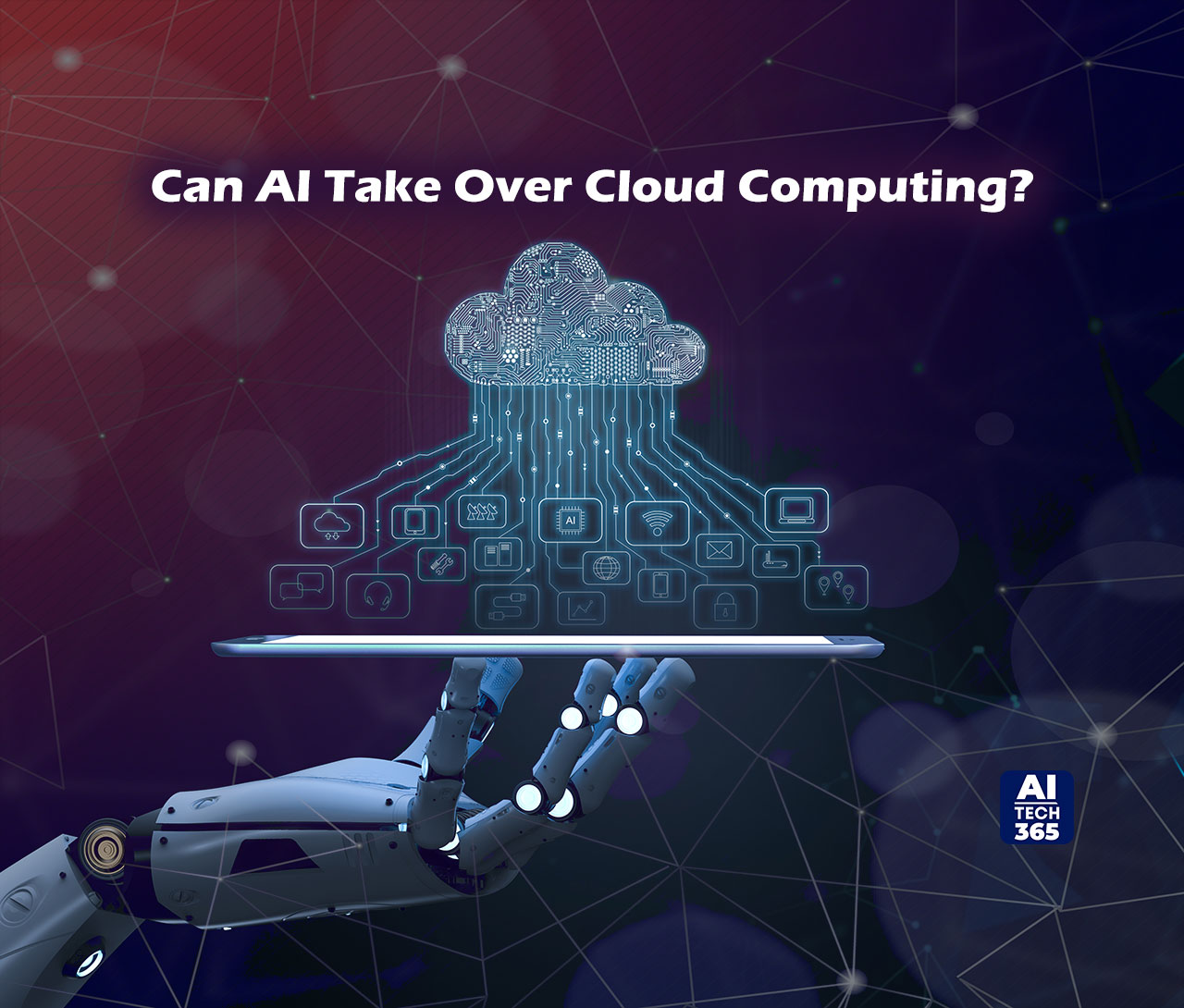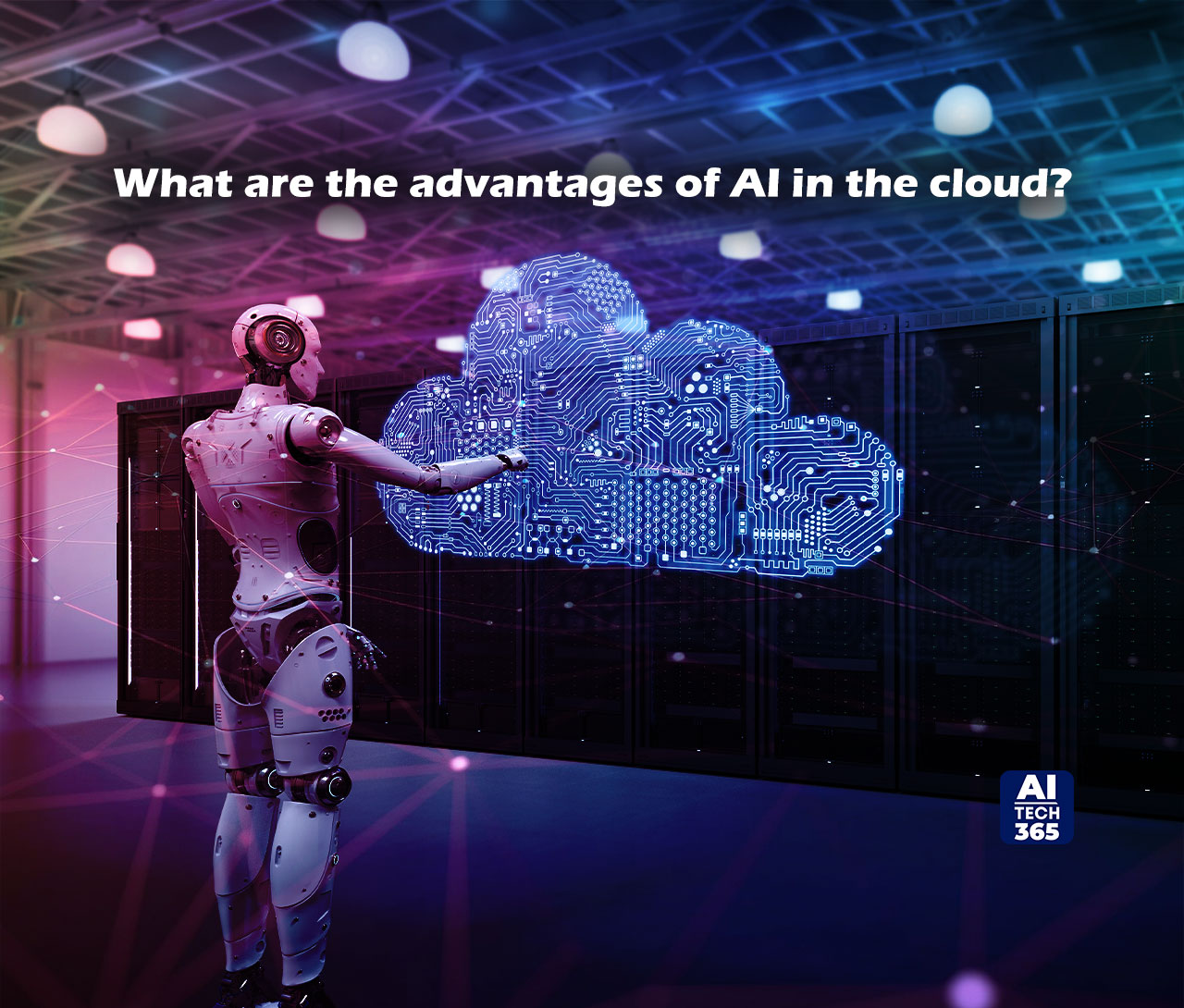If there’s one term that catches the attention of both business owners and everyday folks, it’s artificial intelligence (AI). Cloud computing is no lesser-known term either.
AI in cloud computing is the dynamic duo of superheroes for businesses, not just for IT stuff. The cloud computing market is expected to double in size by 2029, reaching nearly 1.5 trillion dollars, while the AI market is forecasted to skyrocket to over $305 billion, growing more than fivefold.
Instead of thinking of AI and cloud computing as rivals, business leaders should see them as tools to drive business growth. Let’s learn everything about it.
What is AI in Cloud Computing?
AI in cloud computing means integrating AI technologies into cloud platforms and services. This mix enables users not just to store and handle data in the cloud but also to use AI algorithms and tools for analyzing and getting insights from that data.
Using AI software powered by machine learning algorithms within cloud environments creates seamless and intuitive experiences for customers and users. Take Alexa and Siri, for instance—they effortlessly combine AI with cloud capabilities, allowing for tasks ranging from searching the web to playing music to making purchases.
Can AI Take Over Cloud Computing?
AI cannot completely take over cloud computing. While AI plays a significant role in enhancing cloud computing capabilities, it is not a replacement for the entire infrastructure. AI technologies are integrated into cloud computing platforms to improve performance, efficiency, and automation. Cloud computing provides the necessary infrastructure and resources for AI applications to run, as AI algorithms require large amounts of data and computing power. AI can be used to optimize resource allocation in cloud computing environments, ensuring efficient and cost-effective utilization of resources.
AI in Cloud Computing Examples
Below are several illustrative examples of how businesses can use AI in cloud computing to drive growth:
- Automated Resource Management: AI algorithms analyze resource usage patterns, autonomously allocating or scaling resources based on demand. This ensures optimal resource utilization and cost efficiency.
- Intelligent Security Monitoring: AI-powered security systems continuously monitor network traffic, swiftly detecting anomalies and identifying potential security threats in real-time. This proactive approach enhances threat detection and prevention.
- Natural Language Processing (NLP): Cloud-based AI services leverage NLP to empower voice assistants like Siri, Alexa, and Google Assistant. These assistants proficiently perform tasks, address queries, and offer personalized recommendations.
- Predictive Analytics: AI algorithms sift through large datasets stored in the cloud, uncovering patterns, trends, and insights. This enables businesses to make data-driven decisions and predictions, such as sales forecasting or customer behavior analysis.
- Image and Speech Recognition: AI in cloud computing facilitate image and speech recognition capabilities, employed in applications like facial recognition, voice assistants, and automated transcription services.
- Chatbots and Virtual Assistants: AI-driven chatbots and virtual assistants find increasing utility in customer service and support. These systems adeptly interpret and respond to customer queries, offer recommendations, and aid in various tasks.
- Automated Data Processing: AI algorithms automate data processing tasks, including data cleansing, transformation, and integration. This streamlines data workflows and enhances data quality.
These instances underscore how AI enriches cloud computing by delivering intelligent automation, advanced analytics, heightened security, and enhanced user experiences. The fusion of AI and cloud computing paves the way for innovation across diverse industries.
What are the advantages of AI in the cloud?
AI in cloud computing makes for a potent combination. Here’s why this amalgamation stands as a resounding success:
Cost Savings: Historically, running ML models entailed significant investment in high-end hardware. However, with the advent of advanced virtualization in both public and private clouds, the cost associated with building and deploying these models has substantially diminished. This democratizes access to AI capabilities, even for small-to-medium businesses, without imposing exorbitant financial burdens.
Productivity: Traditionally, setting up AI algorithms was a labor-intensive process, demanding considerable administrative time and effort. Yet, with the adoption of hybrid or public clouds, these complexities dissipate, enabling IT personnel to redirect their focus towards more strategic initiatives while relegating repetitive tasks to automated systems.
Automation: AI transcends its role as a mere tool, becoming an integral part of the infrastructure itself, thereby facilitating the automation of routine tasks and the optimization of workloads. In a hybrid cloud configuration, AI-driven tools exhibit the capability to monitor individual components autonomously, preempting potential issues before they escalate into significant challenges.
Analytics: Given the copious amounts of data residing within cloud environments, robust analytics are imperative for deriving actionable insights. AI in cloud computing models streamline this process, leveraging real-time data mining capabilities to furnish bespoke analytics and dashboards tailored to the unique requirements of different applications.
Data Management: AI augments cloud workloads by furnishing real-time data processing and generation capabilities. This is particularly advantageous across diverse domains such as customer service, marketing, ERP, and supply chain management, where AI tools play a pivotal role in activities ranging from fraud detection to personalized shopping recommendations.
Enhanced SaaS Tools: The integration of AI algorithms into Software as a Service (SaaS) platforms represents a notable trend, enhancing the functionality and value proposition of these applications. Users stand to benefit from an enriched user experience, akin to receiving an upgraded version of their preferred software solutions.
The Bottom Line
AI in cloud computing is a powerful combination that brings significant benefits to businesses and organizations. By integrating AI technologies into cloud computing platforms, businesses can leverage automation, advanced analytics, enhanced security, and improved user experiences. AI enables automated resource management, intelligent security monitoring, predictive analytics, image and speech recognition, chatbots, virtual assistants, and automated data processing. This convergence of AI and cloud computing opens up new opportunities for businesses to drive innovation, improve efficiency, and make data-driven decisions. As AI continues to evolve, its role in cloud computing will become even more prominent, making it an indispensable tool for organizations in the digital era.


